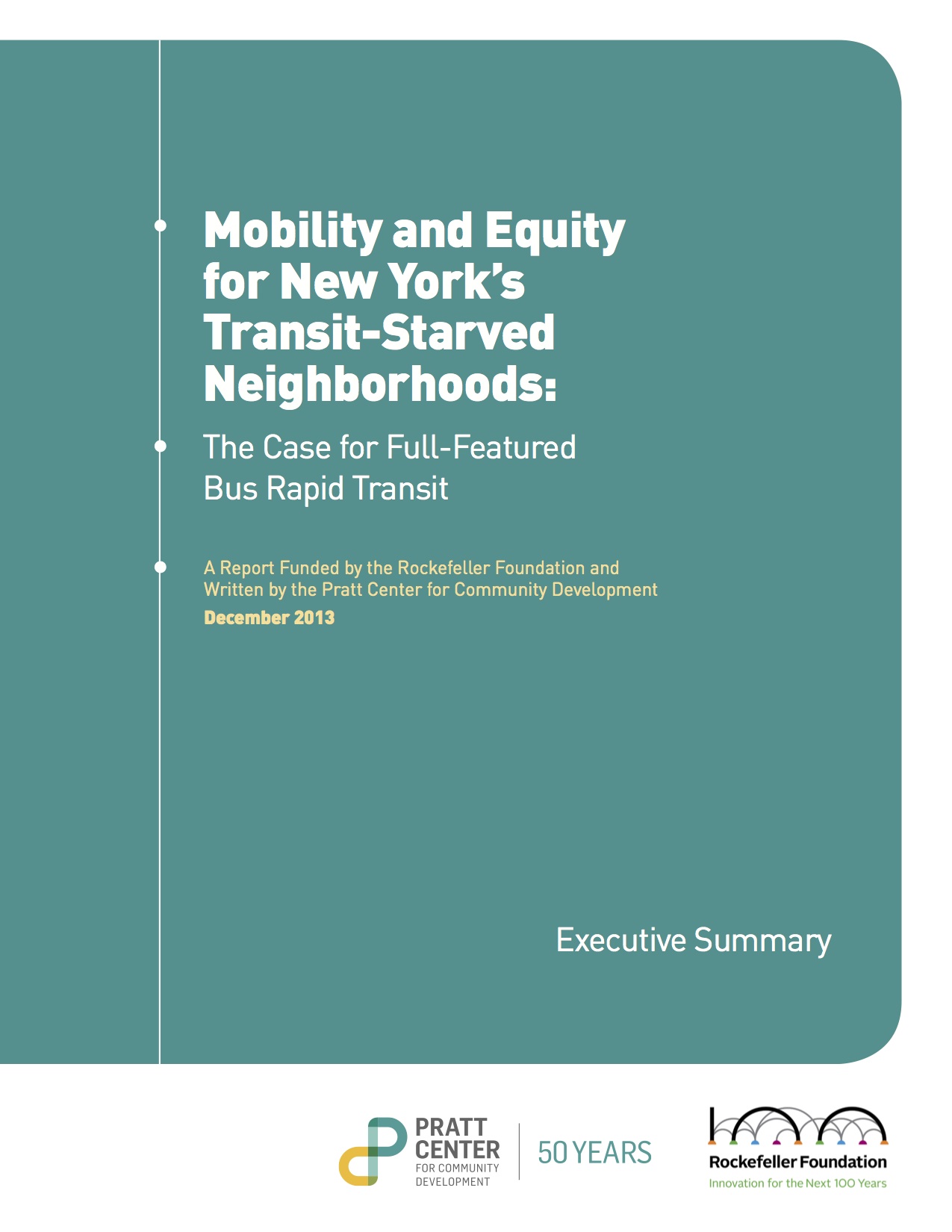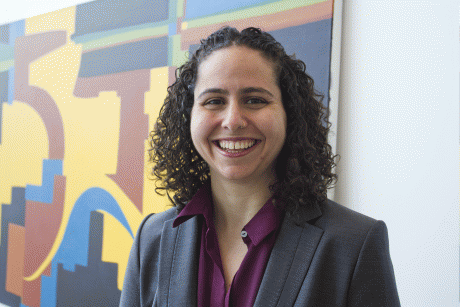
Pratt Center Research
 Democratizing Planning
Democratizing PlanningMobility and Equity for New York’s Transit-Starved Neighborhoods: The Case for Full-Featured Bus Rapid Transit
Report | December 17, 2013
Published jointly by Pratt Center and the Rockefeller Foundation, Mobility and Equity for New York’s Transit-Starved Neighborhoods: The Case for Full-Featured Bus Rapid Transit analyzes how demographic and economic changes have deepened disparities in transit access within New York City. Rising housing costs in convenient, close-in neighborhoods have pushed low- and moderate income families out to neighborhoods with little or no subway service. The demographics of what were once car-dependent, quasi-suburban enclaves have changed: fewer households own cars, and more include multi-generational families with two or more wage-earners. And outer-borough job growth, in sectors like health care, education, retail, logistics, and manufacturing, has made commutes more difficult for workers not served by our Manhattan-centered subway system.
Select Bus Service is already speeding trips on the seven routes implemented to date – but especially in neighborhoods not served by the subway system, people need a rapid transit option.
The report identifies eight corridors where full-featured Bus Rapid Transit – with separated lanes, stations on platforms, and traffic signal priority – is physically feasible and would help now- underserved populations. BRT would not only provide fast and reliable service, but would make wide streets safer for riders, drivers, and pedestrians, and would support the added commercial and residential density needed to keep local retail attractive and competitive. Implementing BRT on the eight corridors analyzed in our report would put true rapid transit within reach of over 2 million New Yorkers.
Read the full report here.



